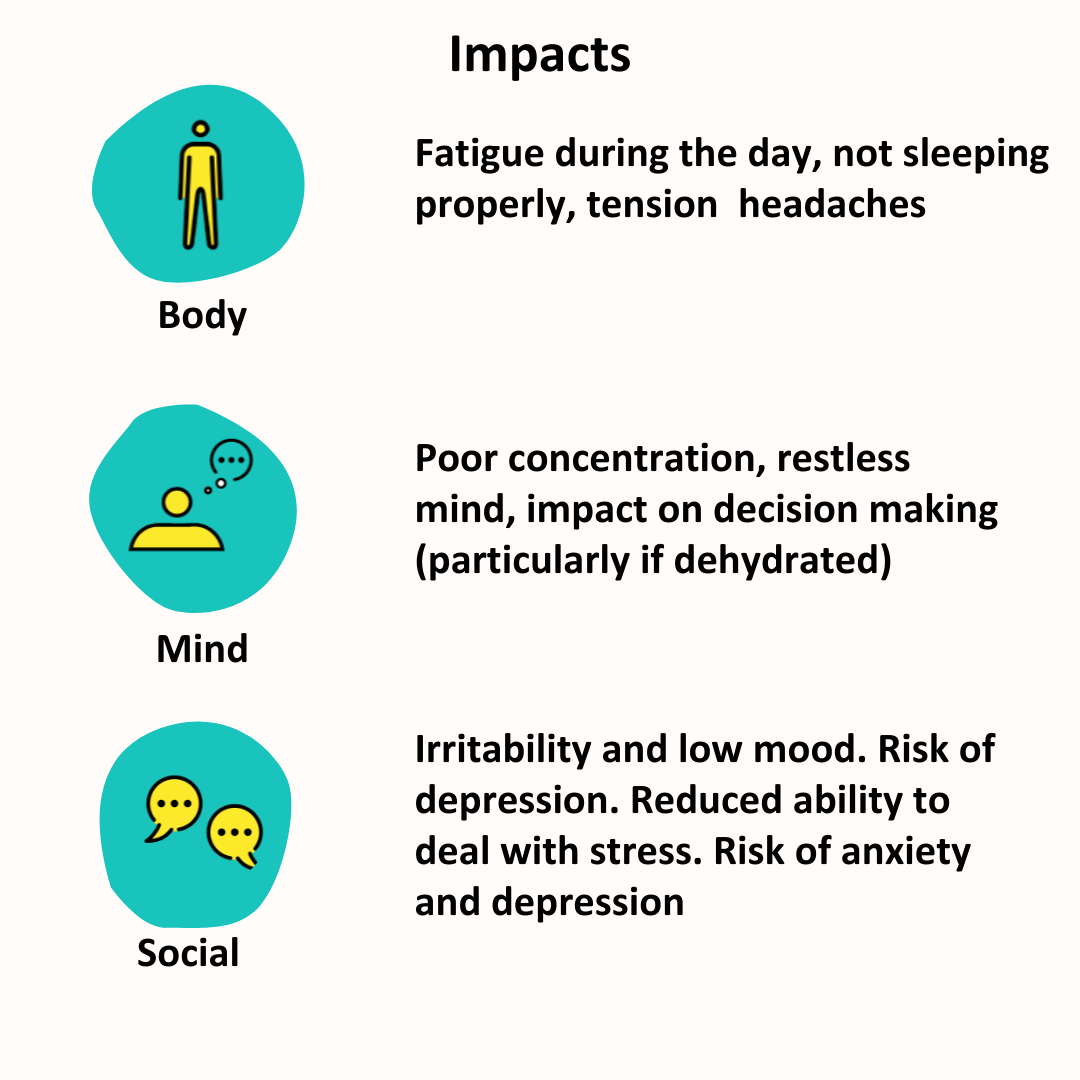What we eat and drink affects how we feel, think and behave. Eating a balanced diet is an essential element of your personal wellbeing.
“Let food be thy medicine and medicine be thy food”…Hippocrates

Rating and Self-Assessment

If you ranked your coping as GOOD then this section should help you maintain that. If you rated it as FAIR or POOR then this section should help you improve the situation.
Impacts
A balanced diet refers to eating a wide range of foods in the right proportions and consuming the right amount of food and drink to achieve and maintain a healthy body weight. By ensuring you consume a balanced diet, you will also lower the likelihood of developing, or worsening existing depression and/or anxiety.
Insufficient fluid intake will result in higher than normal anxiety levels and is linked to fatigue. Remember, alcohol can dehydrate you and is also a depressant.
Failing to manage your diet may result in the following negative impacts on you and your wellbeing in the short term. There are long-term impacts in all these areas, but these are beyond the scope of this document.

What You Can Do
There are simple actions you can take that, if used regularly, can improve your mood and that of those around you, and enhance resilience to the current stresses being experienced by many.
-
Set regular mealtimes.
-
If possible, eat meals in the company of others.
-
Consider using mealtimes as an opportunity for family members to discuss their experience of the current crisis.
-
Consider using cooking and baking as a social activity for the family.
-
Base meals on potatoes, bread, rice, pasta or other starchy carbohydrates, choosing wholegrain versions where possible.
-
Eat some beans, lentils, fish, eggs, meat and other proteins (including 2 portions of fish every week, one of which should be oily).
-
Have some dairy (or dairy alternatives e.g. soya drinks); choose lower fat and lower sugar options.
-
Limit intake of processed foods.
-
Choose unsaturated oils and spreads and eat in small amounts.
-
Drink 6-8 cups/glasses of fluid per day. If consuming foods and drinks high in fat, salt or sugar, have these less often and in small amounts.
-
Restrict alcohol intake.
If you see these signs in someone close to you, or you become aware that someone else is suffering, offer them access to this page of information.
If apparent diet-related problems persist or get worse and affect your quality of life, you should consult your Doctor or a dietician. You may have a peer assistance network available which can help or refer you to a specialist. See some trusted online resources to understand more about diet.

You are not allowed to comment on content in a group you are not member of.
Air Operations